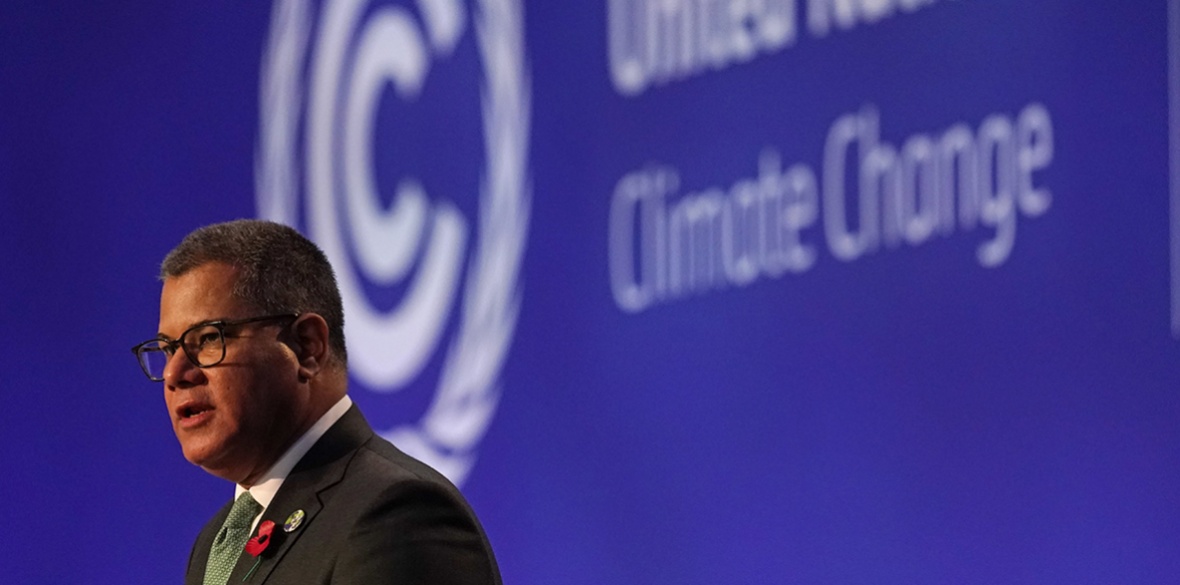FORMER business secretary Alok Sharma, Boris Johnson’s appointee to chair Cop26, sought to put China in the dock today with his widely publicised comments “we expected more” — hardly the best way to win consensus ahead of a critically important conference.
Simultaneously, our press has sought to paint China as a major climate change culprit, either directly through its reliance on coal or through the wider impact of its Belt and Road initiative on neighbouring economies.
Johnson on the other hand has enjoyed a relatively good press with a string of announcements by major multinational companies of carbon reduction investments financially supported by the British government.
Bill Gates has been feted. New investment commitments have been secured from Jeff Bezos.
There are two issues here. One is truth. The other is the contrast of approach between two different social systems.
In terms of carbon emissions per head, China today stands at 7.3 tonnes and the US at more than double that at 15.2.
More striking, however, is the speed of China’s development of zero-carbon technologies. In 2016 the EU generated 101 gigawatt of solar power and China 78.
Today the figures are reversed: China 204 and EU 134. Equally with wind power. In 2014 the EU generated 128 gigawatt and China 114. Today China produces 281 and the EU 201.
And in terms of relevant technologies China is well ahead. It produces 80 per cent of the world’s solar panels. It has over two-thirds of the world’s high-speed electric trains. It has as almost as many electric cars as the US and the EU combined — and 57 percent of its Belt and Road energy investments are for renewables as against 28 per cent two years ago.
At the same time China, along with other developing countries, acknowledges the magnitude of the challenge. China has to match the developmental needs of its people in ways that will not jeopardise their own long-term future or that of the planet. It is now committed to reducing total carbon emissions before 2030. Will US levels be reduced to the same level per head by then?
This bring us to the issue of social systems. China seeks to achieve what it calls “socialist modernisation” by 2035. It utilises private capital. But, as demonstrated recently, this is within developmental goals set politically and socially — particularly for the technologies needed to combat climate change.
How is this being done in Britain, the US and the EU? Rather like combatting Covid-19, it is by handing large amounts of government money to the private sector — generally to the biggest companies.
The oil monopolies are being paid to develop carbon capture, Ibdrola wind farms, Ford electric car batteries, Daimler hydrogen fuel.
So who will control these new technologies? Remember Covid-19 and the pharmaceutical companies.
Will the patents be made freely available for the countries that most need them most for their own development? Or is climate change being used to reboot a technologically stagnant capitalism at our expense?
The money that Johnson is handing out comes from taxes on wage earners. It means cuts in public services and local government budgets.
New technologies will be developed — but can they be implemented fairly and democratically in our big business-dominated society? This is the real question that should be posed in Glasgow this week.
In China electric trains are built by a state-owned firm; electricity is generated by state companies. Trains and electric buses are run by public authorities. The Belt and Road initiative disseminates these technologies.
Former business secretary Alok Sharma knows all this. Scapegoating China as the problem, conveniently hides the real challenge that faces us. It is that of democratic control and ultimately socialism.











